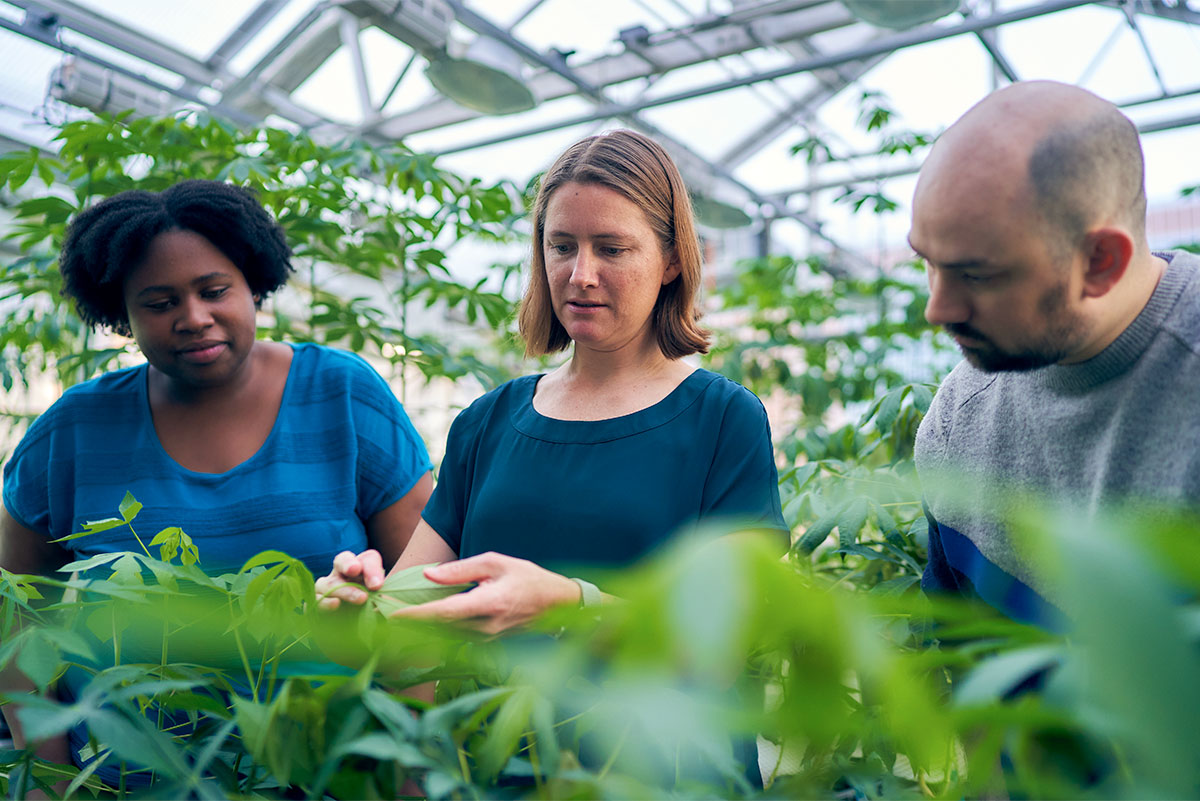Known originally as the “Gateway to the West” as it meets the confluence of the great Mississippi and Missouri Rivers, St. Louis is now increasingly recognized for the flow of scientific advancement that is transforming its role into that of a major agricultural technology capital.
Tackling rising global hunger in the context of complex challenges like climate change requires the right mix of research institutes, industry and start-up agility. Thankfully, this “frontier” spirit of innovation is inextricably connected to the future of St. Louis.
After all, it is fitting that the city of St. Louis, nestled in a naturally biodiverse environment, now acts as a hub of transformative and impactful agtech research and development.
A research and innovation hub
For instance, the city plays host to a wide range of innovative science companies and research institutes, from agricultural science and innovation to biotechnology. This unique environment, clustering together knowledge and expertise, is essential to driving the collaboration and innovation needed to develop solutions for a more sustainable, healthy and hunger-free future for all.
This includes a number of innovation hubs that mobilize talent from across sectors and promote new opportunities across the city. These include St. Louis’ own Cortex Innovation Community, which provides a hub for thousands of jobs, inclusive economic growth and innovation in technology and biological science research, development, and ultimately, commercialization and the 39 North innovation district.
These research clusters and hubs leverage the fact that St. Louis is not only home to major global research institutes but also the highest concentration of plant science PhDs in the world, attracting promising agri-food tech innovators to feed, fuel and build the future.
Several key research institutes are based in St. Louis, driving impactful bioscience research and innovations which seek to address global issues such as world hunger, the impact of climate change and more.
St. Louis-developed innovations
For instance, the Institute for International Crop Improvement (IICI), which I run based out of the Donald Danforth Plant Science Center, has worked alongside a number of other St. Louis-based institutions to developing a range of invaluable solutions to global hunger.
This includes having helped develop a virus-resistant cassava for Africa (VIRCA), with financial support from the St. Louis-based agribusiness Monsanto (now Bayer), which could secure more resilient diets for one-third of Africa’s population who rely on the crop for a majority of their caloric intake.
IICI has also supported the launch of fortified “Malusog Rice” – meaning “healthy” in Tagalog – to help treat vitamin A deficiency (VAD), which remains prevalent in many countries worldwide, as well as a pest-resistant variety of cowpea – or black-eyed peas – using a gene provided by Bayer. This innovative crop could benefit up to eight million Nigeria farmers with greater food production, incomes and nutrition.
Partnerships between other St. Louis-based organizations will also prove essential for ensuring these innovations achieve impact on the world stage. For instance, St. Louis is also home to Bill & Melinda Gates Agricultural Innovations (Gates Ag One), a non-profit organization which accelerates these breakthroughs in agricultural research to meet the urgent need of smallholder farmers in sub-Saharan Africa and South Asia.
Leading in biotech commercialization
Finally, alongside its research expertise, St. Louis is a world leader in plant science and biotechnology commercialization.
St. Louis’ local industry is at the forefront of innovation and is also one of the nation’s fastest-growing – in terms of both employment opportunities and funding – hubs for the life sciences, with the city hosting more than 1,100 plant and life science companies alone.
This includes a mix of well-known plant science stalwarts, such as Bayer Crop Science, as well as a deep list of innovative agtech startups which are developing agri-food tech innovations across a wide range of themes. From the development of protein and fertilizer alternatives to improving genetically modified crops, St. Louis clearly possesses a strong ecosystem of start-ups pushing the frontiers of scientific advancement.
Once hailed as the “Gateway to the West”, St. Louis is now fast becoming an emerging agtech hub where some of the brightest minds and innovative businesses in the field are congregating.
These developments will not only allow the city to play an outsized role in delivering solutions to overcome some of the world’s most pressing issues – such as combatting rising hunger and climate change – but will also maintain the reputation of St. Louis as one of the most vibrant and dynamic places to call home.
Photo: Danforth Center



